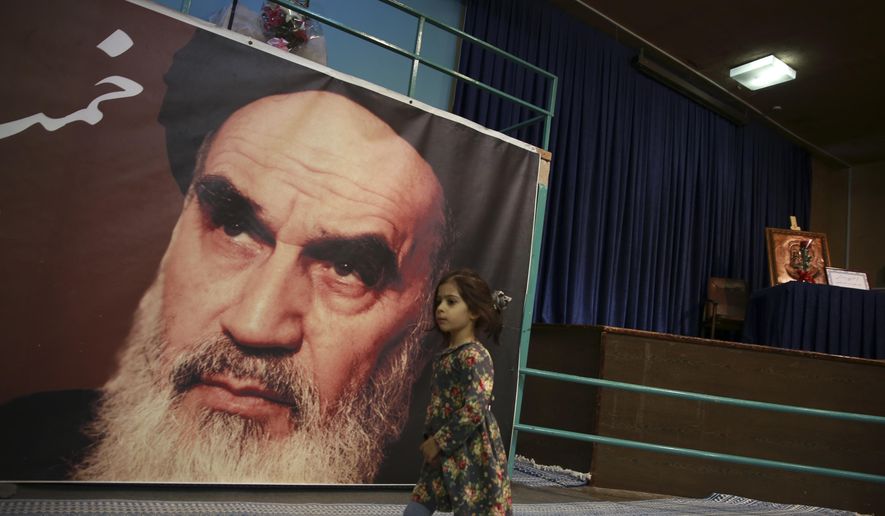A measurement of Iran’s dismal economy is found in the body parts market.
The National Council of Resistance of Iran, the main anti-Tehran dissident group, is out with a new report that says organ-selling is on the upswing as younger Iranians are in a desperate search for cash in a job-scarce economy.
The counsel report said organ sellers are writing offers on walls near hospitals or going on social media to attract bidders. Some are quoted in state-run newspapers.
“Many beg the pedestrians not to erase their announcements from the wall since they are desperate and need the money urgently,” says the council report, entitled “Selling Body Parts: A Tragedy in Iran.” “The sellers usually prefer to contact the prospective candidate directly to avoid giving a commission to the middlemen.”
The price list: kidney, up to $10,000; liver, up to $50,000; and a cornea $20,000.
Shahin Gobadi, a national council spokesman, provided The Times with state-run news agency reports of Iranians willing to give up a cornea to survive financially.
The Albania-based council, which relies on a network of spies as well as Internet searches, says about 3,800 kidney transplants are performed each year in Iran. Of those, about 3,000 are products of a vibrant organ market.
“The kidney and liver markets are hot for brokers. Instagram and Telegram apps are among their preferred platforms,” the council report says. “The middlemen have also set up websites where they ask sellers to sign up and leave their details for buyers to find. Both sides pay the broker’s commission.”
The council provided no comparative organ sales numbers from previous years, but said that its research shows an increase in social media postings as the economy worsens.
The council’s report provided recent notices on a kidney sales web site:
“Omid: Selling healthy kidney, resident of Sannandaj [west Iran], blood type: O- Phone:”
“Rouzbeh: Male, 26 years old, willing to sell a kidney due to financial problems. Blood type: O+. Price: 600 million rials [$5300]. Phone:”
“In addition to functioning through the Internet, brokers often wander around major hospitals and approach relatives of patients who need a transplant in order to assess their financial status and make an offer an offer,” the national council said. “Brokers often take a 50 percent commission on resulting sales.’
The council quoted a health commission member: “Based on Sharia, organ transplant is not a problem and is permissible, and his holiness Imam [Khomeini] gave the authorization for and the grand clerics are not opposed to it.”
The report’s figures come from 2018, three years after the 2015 U.S.-Europe-Iran nuclear deal which freed up billions of dollars in trapped Iranian funds.
The infusion was supposed to supply capital to expand a state-dominated economy. But by 2018, nationwide protests erupted against what citizens said was a corrupt Islamic regime’s hoarding huge amounts of cash and squandering resources on wars in Iraq, Syria, and Yemen.
Mr. Gobadi told The Washington Times: “The point is that through embezzlement, theft and astronomical pillaging of these resources, the Iranian regime’s leaders have devoted most of these resources to suppression at home and export of terrorism as well as financing terrorist groups, fomenting proxy wars in the Middle East and working to obtain weapons of mass destruction.”
Mr. Trump broke with the Barack Obama administration’s nuclear deal and reimposed sanctions in August 2018. The president imposed more sanctions this week as punishment for the missile strike on Saudi Arabia’s oil complexes.
A World Bank report in April said it expects Iran’s economy to contract this year and next, while suffering through “stagflation”––no growth and high inflation––with the government running up record deficits.
Ayatollah Khomeini founded the Islamic Republican of Iran in 1979.
The report also quoted a local news story:
“Amir, who is about 18 years old, has auctioned his kidneys due to poverty. He doesn’t want more than 500 million Rials. [5,000 dollars]. He says he can no longer cope with the landlord’s complaints. He and his brother have each decided to sell one of their kidneys and buy a small house with the help of a loan to relieve their mother of the suffering of not having a home.”
• Rowan Scarborough can be reached at rscarborough@washingtontimes.com.




Please read our comment policy before commenting.